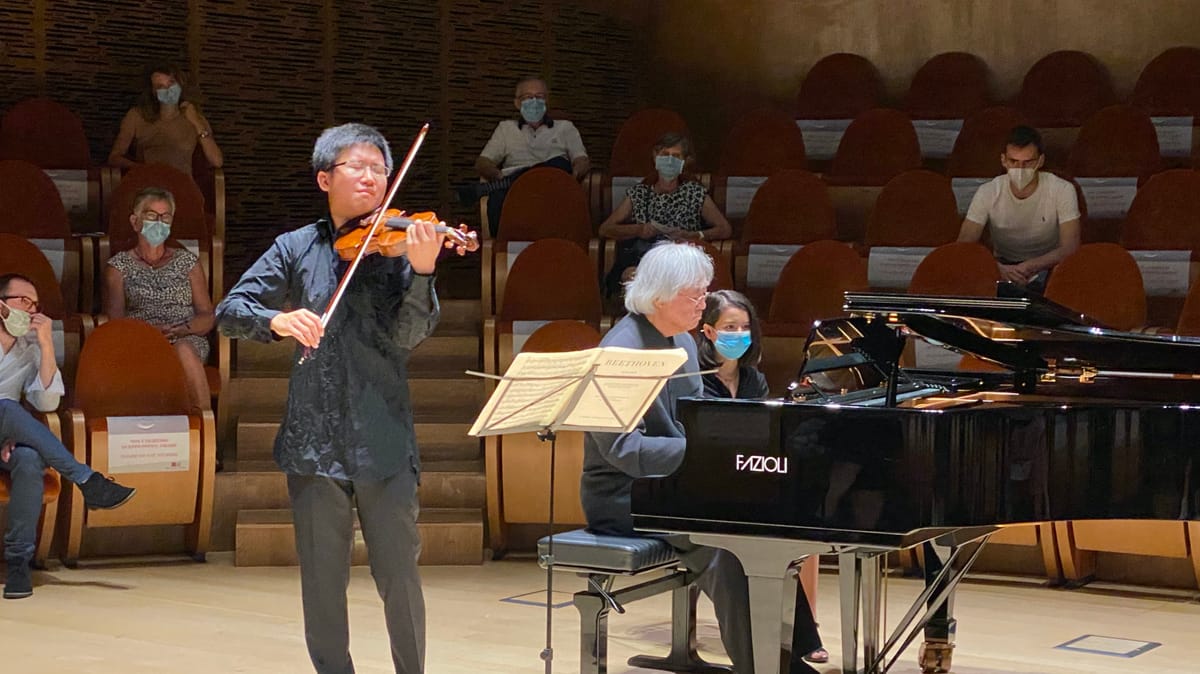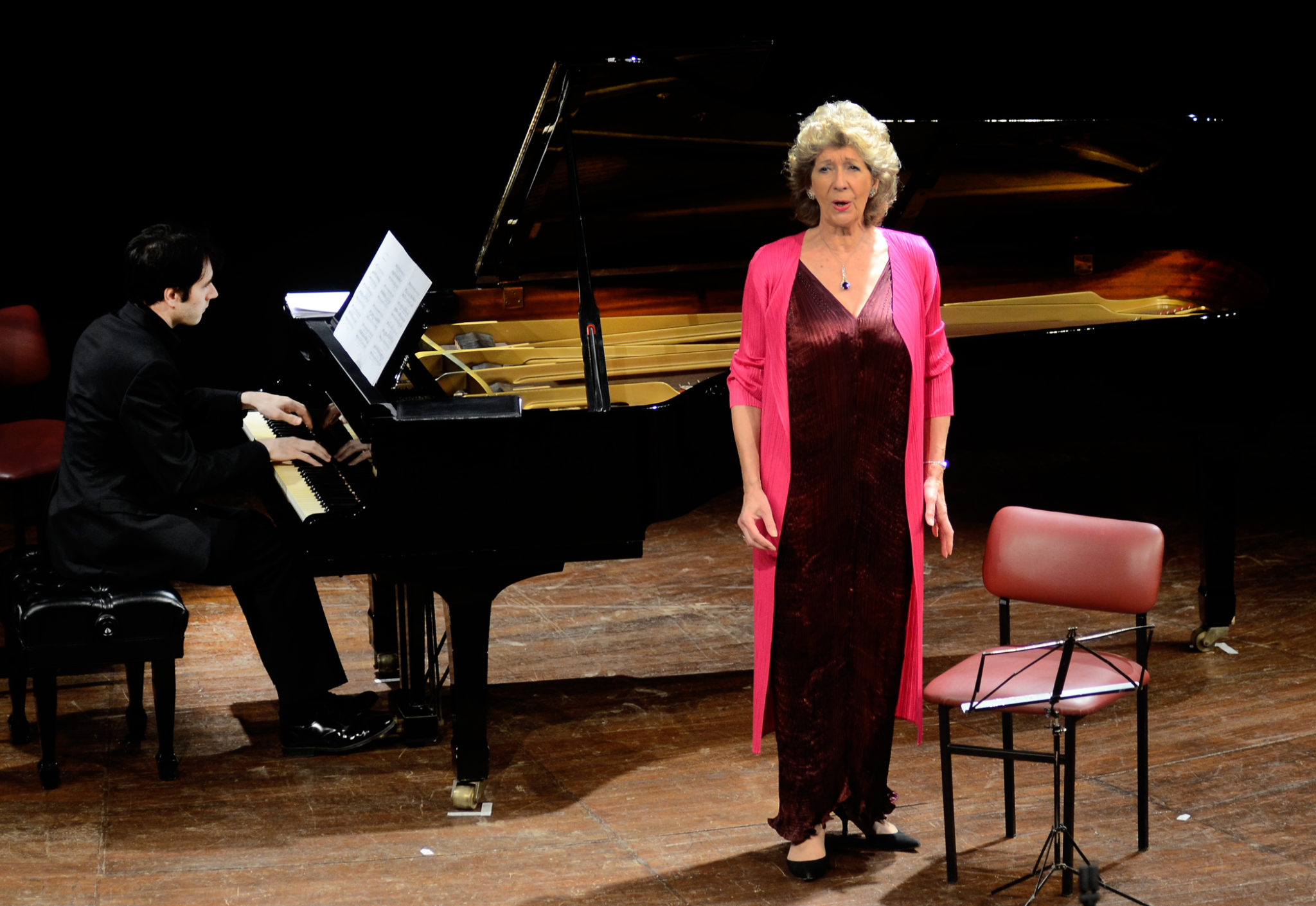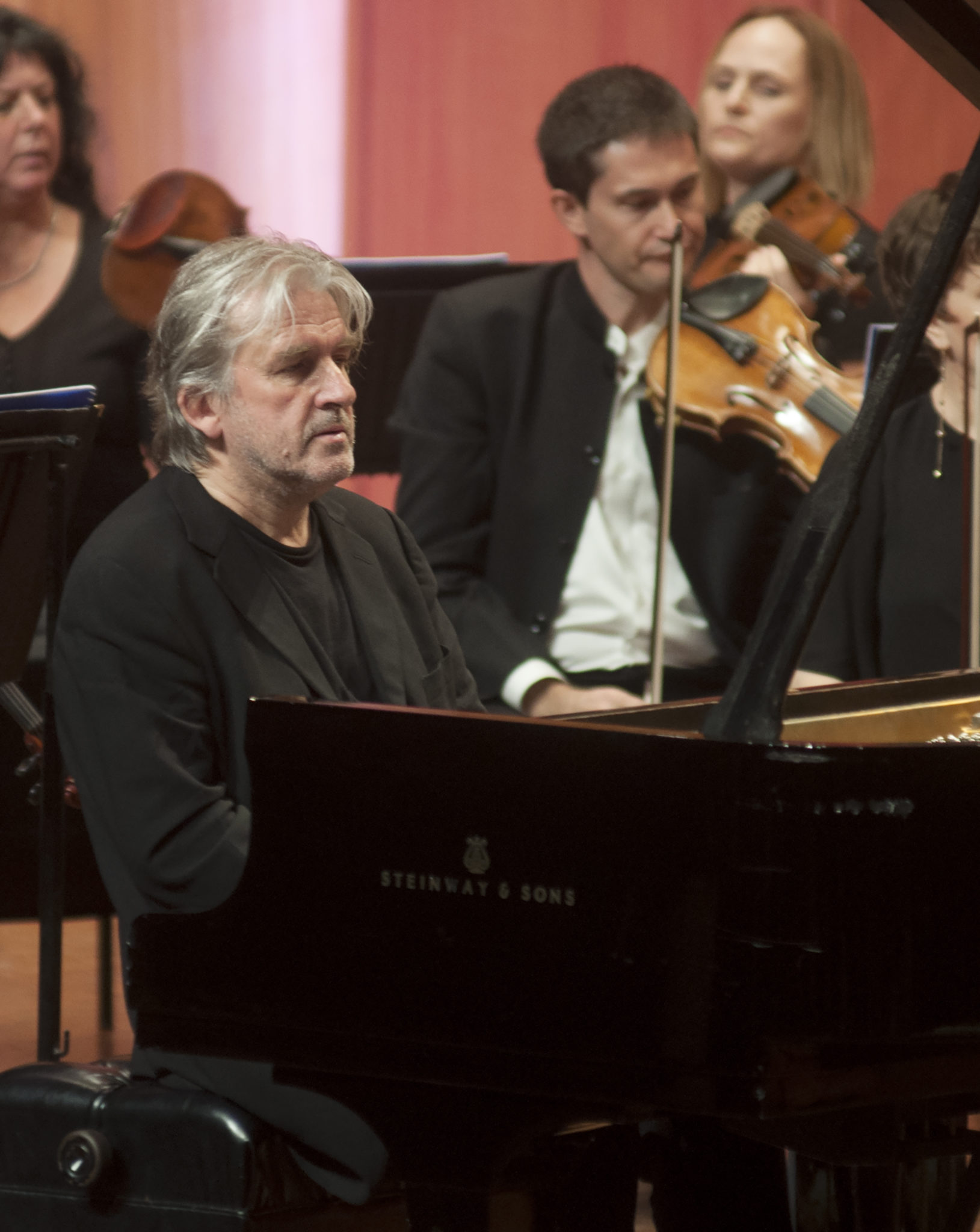Reflections on a Pandemic

Renowned names from the world of Western classical music, whom the NCPA has hosted on its stage, weigh in on what cancelled concerts, the gift of gestation, and the return to live performances amidst restrictions entail for the performing arts.
Dame Felicity Lott, soprano
This pandemic has made me try to live in the present and to enjoy simple things like working in the garden and baking. I’m lucky to have a garden and to have been home to see the roses bloom and the fruit ripen. Usually, I had to go away just as the beans were ready to pick or the raspberries were ripe. I have never spent so long at home; I thought that if I stopped working and was here all the time I would go crazy, but I seem not to have done so…you could check that with my husband however.
I am amazed at the way musicians have adapted to this weird situation. All my concerts and masterclasses in France were cancelled but I have managed a coaching session via Zoom with singers from all over the world: Sweden, Rumania, Scotland and London. And I have been able to “talk” via Zoom with students from various colleges, and to attend, from my music room, the AGM of my old Choral Society in Cheltenham.

The Wigmore Hall has given many wonderful concerts since June, to an empty hall at first and now with a small audience. Via the internet, I have been able to “go to” many of these recitals. As I write this, I’m half watching and wholly listening to a recital from the Oxford Lieder Festival which I could not have attended except for this pandemic. The opera houses and theatres have made so many performances available: one could sit in front of a screen all day.
I hope and pray that this pandemic will soon have run its course and that young people will be able to seize their life chances once again, and reunite with their families. I am grateful to be as old as I am and to have had so many opportunities to travel and to sing: I loved my visits to Mumbai and the NCPA. I came first with Maciej Pikulski, and then with Gauthier Hermann and the wonderful musicians of the Artie’s Chamber Orchestra. I only remember good things about my visits: wonderful warm audiences and the kind and friendly reception from audience and organisers alike. I am thrilled to have been able to come to India and experience your famous hospitality.
I send my very best wishes to you all for your health and safety. Keep the music playing.
Barry Douglas, pianist and conductor
I was in Paris in March 2020 with my orchestra Camerata Ireland — we were performing the complete Beethoven Piano Concertos at The Royal Opera in Versailles and the director said that our concerts were probably the last before the lockdown in France. I was incredulous. Sure enough, they closed the next day and our concerts in Spain the following week were postponed to 2021. From then until December 2020, my concerts in Turkey, France, England, Ireland and many countries have all been cancelled or postponed.
Having the extra time has meant that I was able to read more, study and explore more music, and cook and do some gardening. I started to make videos in my piano room at home and give masterclasses and talks to students all over the world. To be able to connect with young musicians was very exciting. I did a recital in June at the National Concert Hall in Dublin with no audience, as part of the NCH Livestream Series.

We had to cancel our annual Clandeboye Festival this summer, and so I had the idea to get the orchestra together, distanced properly of course, and record and stream the complete Beethoven Piano Concertos — the last time we had all been together had been in March in France. It was brilliant — they played wonderfully and it is available on www.camerata-ireland.com for a year.
Recently, I have been able to play in a few concerts in Ireland, Russia and London and it was great to be back with an audience. Playing and conducting in Moscow in September — with Covid tests done before flying to and from the Russian capital — was fantastic. The orchestra was distanced and so was the audience. Everyone was grateful to listen to live music again.
I plan to prepare for all concerts, even if they may be cancelled or postponed, as life and the arts must continue. I take issue with some governments who don’t think of freelance musicians — we, in the arts, don’t seem to be a priority. I know so many freelance musicians, even in famous orchestras, who are now working in supermarkets. I know that healthcare workers and school teachers are important, but the arts are the way for people to be uplifted and get food for their souls.
I send the audiences at the NCPA my warmest wishes. I have so many happy memories of a great hall and great audiences. See you soon.
Dan Zhu, violinist
The loss of concert activity under lockdown has had its repercussions, professionally and financially speaking, but the emotional side to it has been the hardest. I have lost the way I used to communicate with the world which was through my music on the live stage.
We are living in a kind of duality — the pandemic has brought about a very difficult situation in terms of work and life. At the same time, it has put a sudden stop to the frenetic pace of the world we live in and given us time to think about what is wrong with the way it has been functioning. It has forced us to reconsider how we should live, work and communicate with each other. The pandemic has also made us realise that the world is a lot smaller and connected than we think it to be.
No live concerts in the initial phase of the lockdown meant readjusting what I do professionally, including moving my violin masterclasses online. I created an online concert series called Dan Zhu & Friends Music Connects under which I invited many of my international colleagues — distinguished artistes from different parts of the world — to collaborate with me in duo or trio format.
Online platforms are wonderful under these circumstances to connect with not only fellow musicians but also to keep the hope alive for the listeners through music. Of course, the essential quality of music-making cannot be replicated on the internet. Nothing can replace the beauty and magic of being together in the same space and sharing a moment. As an artiste, I consider music a universal language, a great example of how people connect with each other. Music is a symbol of love and hope to humanity which is needed more than ever in a time like this.
I have just returned from a concert in Hong Kong, which was my first transcontinental concert since the lockdown, as well as the city’s first recital after the reopening of concert halls. To see half-empty venues is sad, but it evokes hope to see people, who have been missing this emotion and contact through a great form of art, come to appreciate music and culture with such passion. It takes courage and it encourages me to share this moment which is more precious than ever and I feel grateful to be able to do what I do.
Another facet of my work that I am grateful for are my trips to India. It fascinates me with its history and atmosphere. It is a great example of multiculturalism. The audience in India is very musical, passionate, appreciative of the arts and open-minded about different types of music.
My first concert in Mumbai was in 2012 and since then, I have been back several times. The Symphony Orchestra of India (SOI) is world-class. I remember the 2017 concert where I played the violin concerto by Korngold which is a very challenging piece, and the musicians of the SOI did brilliantly. They are cooperative, have a very strong sense of collaboration and musicality, and are quick to adapt to different styles of music and artistes they work with. I have very fond memories and I am always looking forward to going back and playing with them again.
This piece was originally published by the National Centre for the Performing Arts, Mumbai, in the December 2020 issue of ON Stage – their monthly arts magazine.





